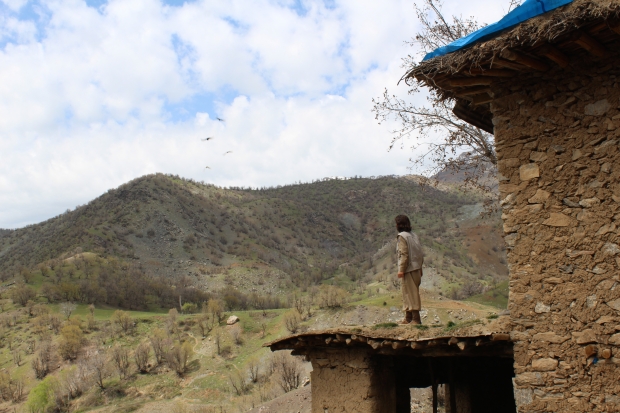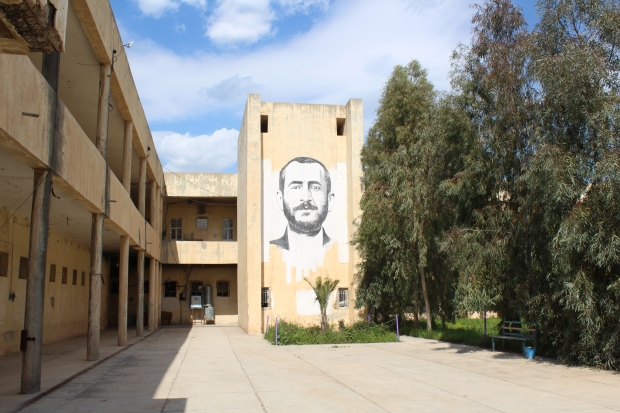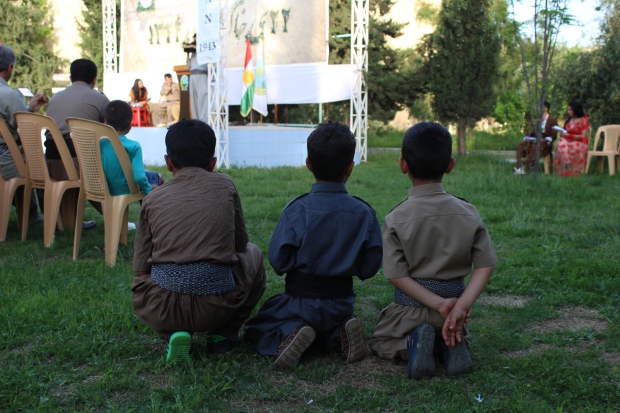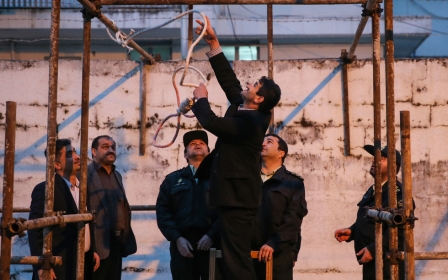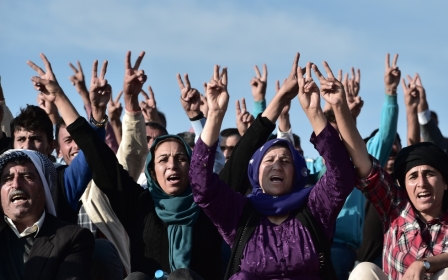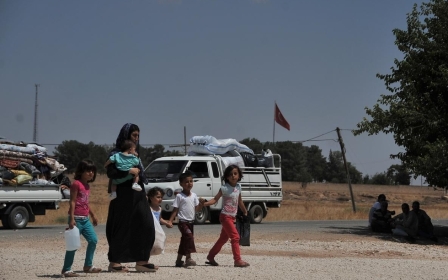Iran's forgotten Kurds plot a comeback
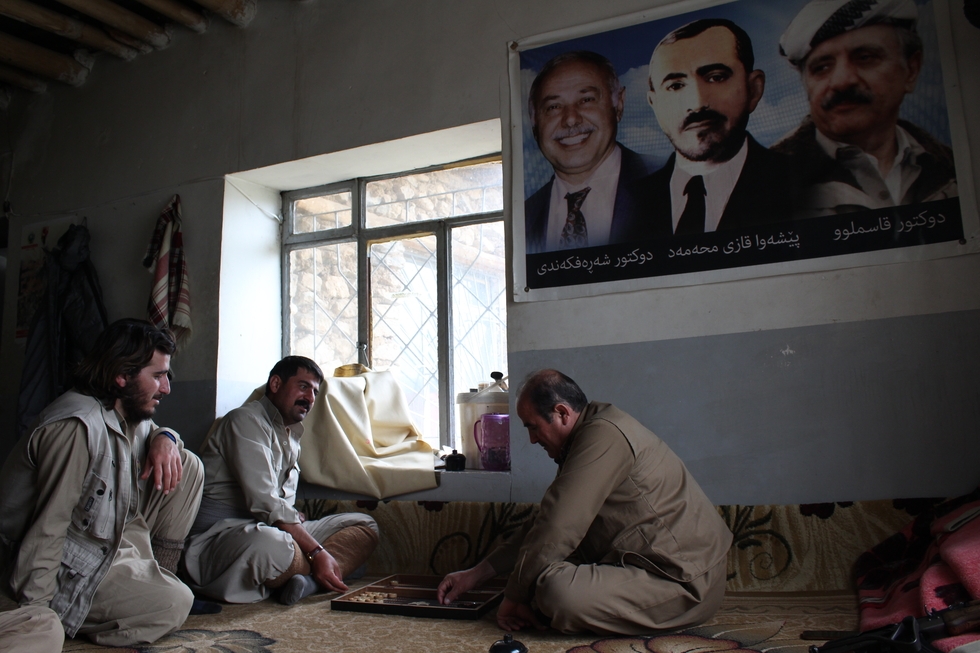
KOYA, Iraq - High up in the mountains of Iraqi Kurdistan, small groups of men are readying themselves for the perilous journey across the border into Iran.
Spring has come to the lush valleys and plains at the foot of the mountains, and the snow is melting on the ridges and towering peaks that form an almost impenetrable barrier during winter. The men dispersed in farmhouses and isolated buildings perched on the steep slopes near the border are Peshmerga fighters of the Kurdistan Democratic Party of Iran (KDPI), an exiled opposition group that is plotting a comeback in the Islamic Republic.
After braving the winter cold, the Peshmerga will soon be dodging army patrols and helicopters as they filter into Iran to grow the party's support base.
"If we are closer to our own, then more people will gather around us and we will be stronger," said Kheder Pakdaman, a seasoned Peshmerga who commands a unit stationed in a base near the Iraqi town of Choman.
But despite a long history of struggle for their political rights, the Iranian Kurds have been all but forgotten.
'Those who face death'
It is little known that the term peshmerga, which loosely translates as "those who face death" originates from Iran, where the short-lived Mahabad Republic remains the only independent Kurdish state to date. Established with Russian help by Qazi Muhammad, the founder of the Kurdistan Democratic Party in Iran in 1946, it faltered less than a year later when the Soviets withdrew their support.
Now known as the KDPI to distinguish it from the Iraqi Kurdish KDP, the party was almost wiped out by the government backlash in the aftermath of Mahabad. It regrouped and was among the opposition groups that ended the Shah's reign with the revolution in 1979, but was crushed by the army in a campaign that cost an estimated 10,000 Kurdish lives in the 80s. It has since been in exile in Iraqi Kurdistan.
"The KDPI has become more active in Iran over the past two years," said Qadir Wrya, a member of the party's politbureau.
Wyra said the party is building an underground network of party cadres in Rojhelat, as the Kurds refer to their areas in the northwest of Iran. The party has also called into life the "Protectors of Rojhelat," a clandestine security force that weeds out spies, and intimidates and kills drug dealers preying on Kurdish youth.
The KDPI Peshmerga are spearheading the recruitment drive in Iran. Lightly armed with Kalashnikovs, machine guns and sniper rifles, their aim is to avoid confrontation with the army during their trek over the mountains, and then to melt away into the villages and towns of Rojhelat. Dressed in baggy olive green or beige traditional Kurdish outfits, with leather belts holding curved Kalashnikov clips and bayonets, they look like they have emerged out of a time warp.
Party membership in Iran is growing rapidly, claimed Wrya. "Hundreds of people contact us every day," he said.
Discontent rising
The party is feeding off growing discontent in Rojhelat, a result of continued government persecution and neglect. Between four and seven million Kurds live in Iran, most of them in the provinces of Kordestan, West Azerbaijan, Ilam and Khermanshah. The Shia theocracy in Tehran has never shed its mistrust of minorities, and Kurdish is not taught in school, while the predominantly Sunni Kurds find that the government discriminates against them on religious grounds too. Kurdish political parties remain outlawed, and activists are routinely thrown in jail and tortured.
"As long as this absolute, multi-faceted denial policy is pursued by Tehran, the sense of alienation and discontent will be on the rise," said Himan Hosseini, a contributing analyst at the Washington Kurdish Institute.
To make things worse, the Kurds have suffered disproportionately from a stagnant economy. Kurdish areas are among the poorest and most underdeveloped in the country, and were particularly hard hit by the sanctions imposed by the US and the European Union to deter Iran from pursuing its nuclear programme. There is little industry in Rojhelat, and little investment. Kurds struggle to get government jobs due to a vetting system that prioritised loyalty to the government in a country where the public sector is the biggest employer and the state owns a big chunk of the economy.
"The economic sanctions ... were a successful foreign policy by the Obama administration. They inflicted, however, lots of suffering and misery upon middle and lower classes of Iranians, in which almost all Kurds belong," said Hosseini.
Many Kurds had been hopeful that the Iranian government would soften its stance towards minorities after the moderate Hassan Rouhani replaced his hardline predecessor Mahmoud Ahmadinejad as president in 2013. But according to the KDPI, these hopes have been dashed.
State persecution and a lack of prospects have already bolstered the ranks of the veteran party with young recruits. Reza, 24, whose unit is only an hour's hike from the Iranian border, said he was a civil rights activist for four years in his hometown of Ilam before he picked up a gun and joined the Peshmerga.
"Most of the young people end up with the armed struggle against the government. Civilian activists face very heavy repression. If you are caught, you will end up in jail for ten years and then your youth is gone," he said.
In 2014, Reza fought IS in Iraq with the Kurdistan Freedom Party, another exiled opposition group known as PAK. He helped beat back the militants' fierce initial assault on Kurdish-controlled territory near Mosul before his unit was redeployed near Kirkuk. The front around the city had quickly stabilised after the Kurds took over from the collapsing Iraqi army, and Reza became convinced that the greater threat to the Kurdish cause was now the Islamic Republic, not the caliphate. He joined KDPI last year.
Hometown heroes
Taking up arms against IS makes Iranian Kurds like Reza heroes at home. The success with which the Iraqi and Syrian Kurds have waged war against the militant group while, at the same time, cutting ties with the countries they are part of has also not gone unnoticed in Rojhelat.
Massoud Barzani, the president of the Kurdistan Regional Government (KRG), has made independence from Iraq his stated ambition. In northern Syria, the People's Protection Unit (YPG), the Kurdish militia, has created a de-facto Kurdish state. The PYD, the PKK's Syrian sister party, is now demanding autonomy for the areas under its control in a future Syria.
"Due to the transnational nature of the Kurdish question, the Iranian Kurds are influenced by what happens in the other parts of Kurdistan," said Hashem Azamadeh, a lecturer at the University of Uppsala in Sweden.
The KDPI, which formerly abandoned its armed struggle against the Iranian government in 1991, says it wants to pursue autonomy for the Kurdish region within Iran by peaceful means. The party leadership knows that it will not make any headway in exile. Not only is it unable to grow its grassroots from across the border, but it is also restricted by its hosts.
Between Iran and Turkey
The Iraqi Kurds can ill afford to anger its powerful neighbour Iran. Its armed forces are no match for the Iranian army, and are tied down on the frontline with IS.
Should the KRG achieve independence, it needs Iran to avoid an overdependence on Turkey. The Islamic Republic is also influential with the Patriotic Union of Kurdistan (PUK), one of the KRG's two main parties. The PUK's powerbase is in the east of the autonomous region, where the exiled opposition groups are based.
"The KRG has restricted our activities out of Iraq to protect their own interests. We understand that they are in a vulnerable position, and have shifted our activities into Iran more," said Wrya.
But by agitating for change within Iran, the party is set to provoke a forceful response by the government, which shows no signs of tolerating dissent. By its own admission, the KDPI's quest for Kurdish rights could escalate into an insurgency.
"The party needs to increase its political presence in Iran. This will lead to a violent response," said Wrya. "I believe an armed struggle is likely in the near future."
Already, KDPI Peshmerga occasionally skirmish with Iranian border guards as they cross into Iran. Other groups could join in the fray. Last year, PJAK, the Iranian offshoot of the PKK, clashed with the Revolutionary Guard and claims to have thousands of its fighters hidden in Iran's mountains.
Even as Iran's Kurds look to Iraq and Syria, their future could resemble that of Turkey, where Kurdish towns are reduced to rubble as the army tries to beat down the PKK insurgency.
New MEE newsletter: Jerusalem Dispatch
Sign up to get the latest insights and analysis on Israel-Palestine, alongside Turkey Unpacked and other MEE newsletters
Middle East Eye delivers independent and unrivalled coverage and analysis of the Middle East, North Africa and beyond. To learn more about republishing this content and the associated fees, please fill out this form. More about MEE can be found here.


